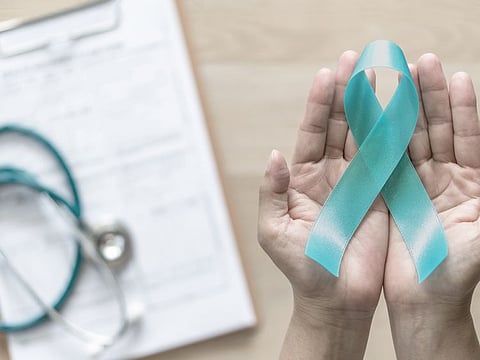Cervical Health Awareness Month
DHA is highlighting the importance of regular screening for women for the common disease

Doctors at the DHA are urging women to be aware of cervical cancer and the importance of regular screening
To mark Cervical Health Awareness Month, which falls in January of every year, doctors are highlighting how the disease remains silent and does not cause any major symptoms in the initial stages.
According to World Health Organisation (WHO), worldwide cervical cancer is the fourth most common cancer in women with an estimated 570,000 new cases in 2018 representing 6.6 per cent of all female cancers.
Dr Muna Tahlak, CEO of Latifa Hospital, said, “When it comes to cervical cancer in particular, there is an ongoing need for awareness. We encourage women to be aware of the disease and to ensure they do not skip their regular cervical cancer screening. The screening is commonly known as a pap-smear screening and it is the most effective way to detect changes in the cells of the cervix.”
Follow-up, diagnosis and treatment is crucial to prevent the development of cancer or to treat cancer at an early stage.

Dr Tahlak said that the main benefit of this screening is that it actually detects pre-cancerous abnormalities at an early stage. “Without this test, these changes might go undetected, as women may not have noticeable symptoms, especially in the pre-cancerous phase.
“If undetected precancerous cells are not treated, it may lead to cancer. Follow-up, diagnosis and treatment is crucial to prevent the development of cancer or to treat cancer at an early stage. Early stage treatment directly results in lesser complications and higher chances of survival.”
Dr Tahlak says getting information about this disease as well as understanding when to begin screenings is not as complicated as it seems.
“Women should simply talk to their gynaecologist. Their gynaecologist will be able to address all their queries as well as inform them how often they need to screen depending on their initial test results,” she said.
She also discussed the importance of the human papilloma virus (HPV) vaccine that protects against cervical cancer. The vaccine is part of the UAE’s National Immunisation Programme.
“The HPV vaccine helps protect against some types of cancers and warts caused by the human papillomavirus (HPV), a group of more than 150 related viruses.
The vaccine should be given to women before they are married or before the age of 26. The HPV vaccine reduces a woman’s risk of cervical cancer and precancerous growths.”
Dr Tahlak said women should prioritise their health and well-being and they must opt for yearly health screenings to keep track of their health and make meaningful changes to avoid developing diseases, which can be controlled by lifestyle modification.
“Women play various roles and an important role is that of a caregiver and therefore they should prioritise their health and well-being so that they can take better care of themselves and their family.”


